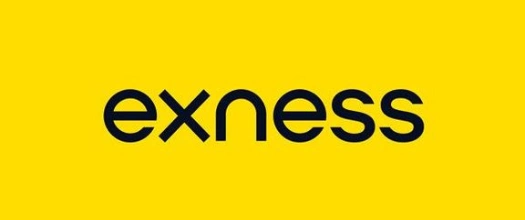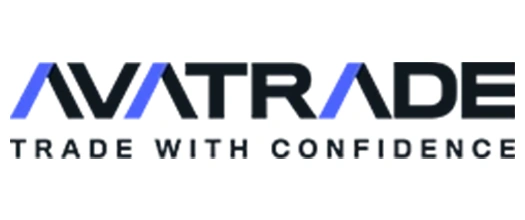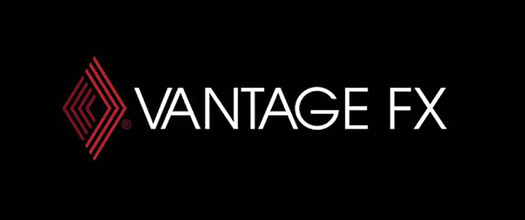- Jump to:
- Main features of the best India Forex brokers
- Forex Brokers in India Compared by Spread
- Account Types and Commissions
- Forex Legislation
- Financial Regulators
- Payment Methods
- Trading Software
- Mobile Trading
- FAQ
Our team of expert traders tested many regulated and trustworthy forex brokers that accept traders from India and compiled a toplist with the best among them. Each broker operating in India received a quality score based on several factors, including Trustpilot rating, regulation, fees and commissions, available trading platforms, customer service and more.
 Fusion Markets74-89% of retail CFD accounts lose money
Fusion Markets74-89% of retail CFD accounts lose money AxiThe vast majority of retail client accounts lose money
AxiThe vast majority of retail client accounts lose money FP Markets73.85% of retail investor accounts lose money
FP Markets73.85% of retail investor accounts lose money Pepperstone75.5% of retail investor accounts lose money
Pepperstone75.5% of retail investor accounts lose money Global Prime74-89% of retail CFD accounts lose money
Global Prime74-89% of retail CFD accounts lose money XM Group72.82% of retail investor accounts lose money
XM Group72.82% of retail investor accounts lose money
Below you can find a comprehensive comparison table of forex brokers for traders in India. We rank them based on several factors including: regulation, spreads and commissions, Trustpilot rating, trading instruments, trading platforms, deposit and withdrawal methods.
Main features of the best India Forex brokers
- Min DepositVaries based on methodTrading InstrumentsForex, CFD's on Stock, CFD's on IndicesRegulatorsCySEC, FCA, FSC (Mauritius), FSA (Seychelles), CBCS (Curacao), FSC (BVI)Trading PlatformsMT4, MT5, Exness Terminal (Proprietary)SpreadFrom 0.2 pips (Standard), 0.0 pips (Zero, Raw)Leverage1:2000Deposit MethodsBank Wire, Visa, MasterCardWithdrawal MethodsBank Wire, Visa, MasterCard
Exness is a broker that boasts licenses from the SFSA, FSC, and CBCS. Indian traders can register and choose from MT4, MT5, or Exness’ web and mobile clients. India-friendly deposit methods: UPI express, UPI ID, bank transfers, and more. INR is among the available base currencies. Markets: CFDs on forex, commodities, stocks, indices, and crypto. Standard accounts’ spreads start from 0.2 pips, no commissions are charged, $10 minimum deposit required, lot size between 0.01 and 200 lots. No max leverage limit, swap-free trading is an option. VPS hosting available. Exness offers 10+ language options, Hindi included.
- Min Deposit$0Trading InstrumentsForex, Commodities, Indices, Crypto, US StocksRegulatorsASIC, FSA (Seychelles), VFSC (Vanuatu)Trading PlatformsMetaTrader4, MetaTrader5, cTrader, DupliTrade, Fusion+ Copy Trade, TradingViewSpread0.9 pips Classic; 0.0 pips ZeroLeverage1:30 (1:500 for forex and metals via VFSC)Deposit MethodsVisa, Mastercard, PayPal, Skrill, Neteller, Fasapay, Jeton Wallet, Perfect Money, Online Naira, Doku, Bitcoin, Ethereum, Litecoin, USDT, Tether, Ripple, bank wire, ZotaPay, VNPay, DuitNow, XPay, DragonPay, VAPay, FasaPay, AstroPay, PayID, Jetonbank, Sticpay, Interac, LuqaPay, Zotapay, MiFinityWithdrawal MethodsVisa, Mastercard, Bank Wire, Skrill, Neteller,Bitcoin, Ethereum, Litecoin, Tether, Ripple, MiFinity, Interac, PayPal, AstroPay, Jetonbank, DragonPay74-89% of retail CFD accounts lose money
Fusion Markets welcomes India-based traders. The broker is regulated by ASIC and the VFSC, and it deposits clients’ money in segregated HSBC and NAB accounts. Dozens of forex pairs can be traded, and other markets include indices, metals, cryptocurrencies, CFDs on US shares, and commodities. Platforms: MT4/5, TradingView, cTrader. All platforms have mobile-friendly options. MAM/PAMM platform is also present, as is DupliTrade. Minimum spreads dependent on account type: 0.9 pips (Classic), 0 pips (Zero). Zero account holders need to pay a commission of $2.25 per side.
- Min Deposit$50 (AU$100)Trading InstrumentsForex CFDs, Shares CFDs, Metals CFDs, Commodities CFDs, Indices CFDs, Crypto CFDs, ETF CFDsRegulatorsASIC, CySEC, FSA (Seychelles), FSCA, FSA (St. Vincent and the Grenadines)Trading PlatformsMetaTrader4, MetaTrader5, WebTrader, IRESS, cTrader, TradingViewSpread1.0 pips Standard; 0.0 pips RawLeverage1:30Deposit MethodsVisa, Mastercard, Neteller, Bank Transfer, Skill, Sticpay, Fasapay, Virtual Pay, Perfect Money, Pagsmile, Dragonpay, Crypto, Apple Pay, Google Pay, Online Banking, Broker to Broker, PayPal, XPay, RapydWithdrawal MethodsVisa, Mastercard, Bank Wire, Neteller, Skrill, Paytrust88, PayPal73.85% of retail investor accounts lose money
Over 70 forex pairs are a part of FP Markets’ selection of financial instruments. Other markets include metals, commodities, shares, bonds, indices, ETFs, and cryptocurrencies. Indian traders can make use of MT4/5, TradingView, cTrader, the mobile app, or the web trader. During registration, traders can choose Hindi as their account language. Standard spreads start from 1 pip. Raw accounts’ spreads can be as low as 0 pips ($3 commission per side is charged). Maximum leverage: 1:500. Islamic (swap-free) accounts are also an option. Some deposit methods (UPI, Neteller, Skrill, etc.) support transactions in INR.
- Min Deposit$100Trading InstrumentsForex CFDs, Commodity CFDs, Shares CFD's, Index CFDs, Crypto CFD'sRegulatorsSCB (No. SIA-F220), ASIC (No.391441), CySEC (No. 246/14), FCA (No. 921296)Trading PlatformsMT4, MT5, WebTrader, TradingView, Capitalise.ai, FlashTraderSpread0.1 pips on Standard and TradingView Accounts; 0.0 pips Raw AccountsLeverage1:30Deposit MethodsVisa, PayPal, Mastercard, Wire Transfer, Neteller, Skrill, Tether, Bitcoin, BPAY, Dragonpay, Fasapay, Interac, Pix, UnionPayWithdrawal MethodsMastercard, Visa, PayPal, Skrill, Neteller, Bitcoin, Tether, Wire Transfers, BPAY, Fasapay, Pix, Interac, UnionPay76.09% of retail investor accounts lose money
Eightcap is a fantastic option for aspiring and experienced Indian traders alike. The broker facilitates the trading of CFDs on currency pairs (EUR/USD, AUD/USD, etc.), commodities, indices, shares, and cryptocurrencies. Spreads: from 1 pip (Standard, TradingView), from 0 pips (Raw). $100 minimum deposit. Raw account spreads are accompanied by a commission of $3.5 per standard lot traded. The maximum leverage is 1:200 for clients registered at Eightcap Global Limited. TradingView, MT4, and MT5 are available platforms-wise. Using an expert advisor is an option. Eightcap is regulated by CySEC, the SCB, ASIC, and the FCA.
- Min Deposit$0Trading InstrumentsForex, Cryptocurrencies, Indices, Commodities, BondsRegulatorsASIC (No. 385620), VFSC (No. 40256)Trading PlatformsMT4 Desktop, MT4 Webtrader, MT4 AndroidSpread0.9 pips Standard, 0.0 pips RawLeverage1:500 (1:30 for ASIC entity)Deposit MethodsVisa, Mastercard, PayPal, Skrill, Neteller, Gate8, Dragonpay, Fasapay, VNPay, Pagsmile, BPay, POLi, AstroPay, Bank Transfer, Interac, Perfect Money, PayID, Jeton, MiFinity, XPay, CryptoWithdrawal Methods
Mastercard, Visa, Local Bank Transfer, Bank Wire Transfer, Skrill, Neteller, AstroPay, PayPal, Dragonpay, Perfect Money, Jeton, Interac, Cryptocurrencies
74-89% of retail CFD accounts lose moneyGlobal Prime accepts traders from India, and its market selection includes forex, crypto CFDs, indices, commodities, and bond CFDs. Standard spreads can be 0.9 pips or higher, while Raw spreads start from 0 pips. Stop out level: 20%. Trade size from 0.01 to 1,000 lots. Scalping and hedging are permitted. ASIC and the VFSC supervise Global Prime’s operations. $0 minimum deposit, numerous suitable payment methods (Visa, Mastercard, PayPal, Skrill, crypto, etc.) Low execution speeds (as low as 10ms). Low latency courtesy of X-Connect (NY4 data center). 24/7 customer support.
- Min Deposit$200Trading InstrumentsCFDs on Forex, Commodities, Index, Bond, Cryptocurrencies, Stock, FuturesRegulatorsFSA (Seychelles), CySEC, ASICTrading PlatformsMetaTrader4, MetaTrader5, cTrader, ZuluTradeSpread0.8 pips Standard, 0.0 pips Raw AccountsLeverage1:30Deposit MethodsBank transfer, Visa, Mastercard, PayPal, Skrill, Neteller, Visa Direct, SafeCharge, Transact365, eCommPay, CardPay, Bpay, FasaPay, Poli, RapidPay, Klarna, NuveiWithdrawal MethodsBank transfer, Visa, Mastercard, PayPal, Skrill, Neteller, Visa Direct, SafeCharge, Transact365, eCommPay, FasaPay, Poli, RapidPay, Klarna70.64% of retail investor accounts lose money
India-based traders can rest assured that IC Markets is regulated by multiple supervisory entities, including the FSA (Seychelles). Spreads are pretty low. EUR/USD, for instance, has minimum spreads of 0.8 pips (Standard) or 0 pips (Raw Spread). Raw Spread (cTrader) commission: $3 per lot per side. Raw Spread commission: $3.5 per lot per side. $200 starting deposit. Indian traders can try platforms like MT4, MT5, TradingView, and cTrader. Besides 60+ forex pairs, trading CFDs on commodities, indices, metals, bonds, and cryptocurrencies is also possible. Islamic (swap-free) accounts are available.
- Min Deposit$100Trading InstrumentsRegulatorsCySEC (license no. 079/07), ASIC (license no. 246566), FSA (license no. SD056), and FSC (license no. SIBA/L/20/1135).Trading PlatformseasyMarkets, MetaTrader 4, MetaTrader 5, TradingViewSpreadLeverage1:30Deposit MethodsVisa, Mastercard, JCB, Amex, Skrill, Neteller, Fasapay, Sofort, iDEAL, Web Money, BPay, Bank TransferWithdrawal MethodsVisa, Mastercard, JCB, Amex, Skrill, Neteller, Fasapay, Sofort, iDEAL, Web Money, BPay, Bank Transfer71% of retail investor accounts lose money
EasyMarkets offers Indian traders markets like forex (EUR/USD, GBP/USD, GBP/JPY, etc.), metals, commodities, indices, options, cryptocurrencies, and shares. Spreads vary based on the account type. For EUR/USD, the spreads start from 0.8 pips (TradingView/Web/App), 0.7 pips (MT4 VIP, MT5), 1.2 pips (MT4 Premium), or 1.7 pips (MT4 Standard). TradingView and MT4 spreads are fixed, while MT5 spreads are variable. Minimum transaction size is 0.01 lots regardless of account type. $25 minimum deposit for TradingView, MT4 Standard, and MT5 accounts. Leverage limits are platform-dependent: 1:200 (TradingView/Web/App), 1:400 (MT4), 1:2000 (MT5). No commissions. A Plethora of deposit options are offered. UPI and NetBanking are among them.
- Min Deposit$100Trading InstrumentsForex, Major stock indices, Cryptocurrencies, Commodities, Bonds, Individual Shares, ETFsRegulatorsFFAJ (License No.1574),CySEC (No. 347/17) ISA (No. 514666577), IIROC, ADGM / FSRA (No.190018), CBI (No.C53877), BVIFSC (No. SIBA/L/13/1049), FSCA(No.45984), ASIC (No.406684), JFSA (No. 1662)Trading PlatformsMetaTrader4, MetaTrader5, WebTrader, AvaTadeGO, AvaSocial, AvaOptions, DupliTradeSpreadFrom 0.9 pips (retail), 0.6 pips (pro)Leverage1:30Deposit MethodsVisa, Mastercard, Skrill, WebMoney, Neteller, bank wireWithdrawal MethodsVisa, Mastercard, Skrill, WebMoney, Neteller, bank wire76% of retail investor accounts lose money
AvaTrade is a low-spread broker that accepts clients from India. Platforms include AvaOptions, MT4, MT5, the mobile app, and WebTrader. Automated trading is also an option via AvaSocial and DupliTrade. 1200+ tradable CFDs. Markets: forex, stocks, commodities, indices, futures. Traders can take advantage of leverage (up to 1:400). Forex spreads may fall below 1 pip. No commissions. Swap-free trading is an option. AvaTrade is licensed by the FSC (B.V.I.), FSCA, FRSA, and other regulators. Ample amount of educational content, including videos, written guides, and an eBook.
- Min Deposit$0 (Standard)$2,000 (Prime)$20,000 (Institutional)Trading InstrumentsForex, Commodities, Futures, Indices, Stocks, CryptocurrenciesRegulatorsSFSA (No. SD045), FMA (No. FSP403326), FSATrading PlatformsMT4, MT5, TradingView, cTrader, MT WebTrader, BlackBull Shares, BlackBull CopyTrader, BlackBull Trade, BlackBull Invest, ZuluTradeSpread0.8 pips Standard; 0.1 pips Prime; 0.0 pips InstitutionalLeverage1:500Deposit MethodsVisa, Mastercard, Neteller, Airtm, Skrill, Bank Transfer, HexoPay, American Express, POLi, Payment Asia, Help2Pay, FXPay, Fasapay, China Union Pay, Boleto, AstroPay, Beeteller, Bitcoin, Ethereum, Tether, Ripple, Litecoin, Bitcoin Cash, Chainlink, USD Coin, StellarWithdrawal MethodsVisa, Mastercard, Bank Transfer, Airtm, Skrill, Neteller, American Express, POLi, HexoPay, Payment Asia, Help2Pay, FXPay, China Union Pay, Boleto, Fasapay, Beeteller, AstroPay, Bitcoin, Litecoin, Bitcoin Cash, Tether, Ripple, Stellar, Chainlink, Ethereum, USD Coin
BlackBull Markets has much to offer to Indian traders. Over 70 major, minor, and exotic forex pairs can be traded. Other markets: commodities, equities, indices, metals, cryptocurrencies. 26,000+ instruments in total. MT4/5, cTrader, and TradingView are the platforms clients can pick from. The broker also offers the BlackBull CopyTrader and BlackBull Invest platforms. Spreads from 0.8 pips (ECN Standard) or 0.1 pips (ECN Prime). Standard users have no deposit minimum to meet and do not pay commissions. $2,000 minimum deposit for ECN Prime, $6 commission (round turn). Up to 1:500 leverage. Under 100ms execution. Licensed by the regulators of New Zealand, the UK, and Seychelles.
- Min Deposit$50Trading InstrumentsForex, Indices, Commodities, Shares CFD, ETFs, BondsRegulatorsFCA (license no. FRN: 590299), VFSC (reg. No. 700271), ASIC (license no. no. 428901), FSCA (license no. 51268), CIMA (no. 1383491)Trading PlatformsMetaTrader 4, MetaTrader 5, ProTrader, TradingView, Copy TradingSpread1.1 pips on Standard Account; 0.0 pips on Raw, Cent, and Pro AccountsLeverage1:30Deposit MethodsVisa, Mastercard, Union Pay, Boleto, Bank Wire, Skrill, Neteller, Crypto, POLi, FasaPay, Perfect Money, BPay, Pagsmile, AstroPay, JCBWithdrawal MethodsVisa, Mastercard, Union Pay, Bank Wire, Skrill, Neteller, Crypto, AstroPay, Perfect Money, JCB
With its low spreads and impressive range of instruments, Vantage is a broker many Indian traders will be impressed by. Market selection: forex, indices, precious metals, soft commodities, energy, ETFs, share CFDs, and bonds. Standard STP spreads from 1 pip. Raw ECN and Pro ECN spreads can be as low as 0 pips. Minimum deposit is $50 unless the account is Pro ECN. Raw ECN users must pay commissions of at least $3. Swap-free accounts are an option as well. Trading size from 0.01 lots. Plenty of platforms are available: MT4/5, ProTrader, Vantage Copy Trading, and TradingVIew. The Vantage App is compatible with iOS and Android devices. 2FA available. Client money is segregated. 24/7 customer support.
Forex Brokers in India Compared by Spread
| Broker | EUR/USD | USD/JPY | GBP/USD | USD/CHF | AUD/USD | EUR/GBP | USD/CAD |
|---|---|---|---|---|---|---|---|
| 1. Fusion Markets | 0.07 | 0.13 | 1.01 | 0.37 | 0.90 | 0.23 | 0.14 |
| 2. BlackBull Markets | 0.1 | 0.2 | 0.4 | 0.9 | 0.4 | 0.7 | 0.5 |
| 3. Global Prime | 0.13 | 0.28 | 1.11 | 0.34 | 0.07 | 0.28 | 0.26 |
| 4. Vantage FX | 0.2 | 0.5 | 0.4 | 0.6 | 0.5 | 0.3 | 0.3 |
| 5. Exness | 0.6 | 0.7 | 0.7 | 0.9 | 0.6 | 1.0 | 1.1 |
| 6. easyMarkets | 0.7 | 1.0 | 0.9 | 1.5 | 1.2 | 1.0 | 2.3 |
| 7. IC Markets | 0.8 | 0.8 | 0.8 | 0.8 | 0.8 |
| 0.8 |
| 8. AvaTrade | 0.9 | 1.3 | 1.3 | 1.3 | 1.1 | 1.2 | 1.8 |
| 9. Eightcap | 1.00 (min) | 1.1 | 1 | 1.4 | 1.2 | 1 | 1.2 |
| 10. FP Markets | 1.1 | 0.30 | 1.2 | 1.8 | 1.2 | 0.20 | 1.5 |
Account Types and Commissions
| Broker | Min Deposit | Account Types | Commission per Lot | Trustpilot Rating |
|---|---|---|---|---|
| 1. Fusion Markets | $0 | Zero, Classic, Islamic, Demo, Professional | $0 Classic Account, $4.50 round turn on Zero Account | 4.9 |
| 2. FP Markets | $50 (AU$100) | Standard, Raw, Demo, Professional, Islamic | $0 Standard Account; $6 round turn on Pro Account | 4.7 |
| 3. Exness | Varies based on method | Standard, Standard Cent, Pro, Raw Spread, Zero | $7 round-turn (Raw), $0.10 (Zero) | 4.5 |
| 4. Global Prime | $0 | Standard, Raw, Demo, Professional, Islamic | $0 Standard Accounts; $7 round turn on Raw Accounts | 4.5 |
| 5. IC Markets | $200 | Raw Spread cTrader, Raw Spread MT, Standard MT | $0 Standard MT; $6 round turn on Raw cTrader; $7 round turn on Raw MT | 4.5 |
| 6. easyMarkets | $100 | Web/App VIP, Premium, and Standard; MT4 VIP, Premium, and Standard, MT5 | $0 | 4.5 |
| 7. BlackBull Markets | $0 (Standard)$2,000 (Prime)$20,000 (Institutional) | ECN Standard, ECN Prime, ECN Institutional | $0 Standard; $6 per lot Prime; $4 per lot Institutional | 4.5 |
| 8. AvaTrade | $100 | Retail, Professional, Islamic, MAM | $0 | 4.4 |
| 9. Eightcap | $100 | Standard, Raw, TradingView Account | $0 on Standard and TradingView Accounts; $7 round turn on Raw Accounts | 4.2 |
| 10. Vantage FX | $50 | Standard, Cent, Pro, Raw | $3 per side on Raw; $1.50 per side on Pro | 3.5 |
Forex trading is a relatively new and quite exciting investment option in India. Even though authorities have implemented tough restrictions on this activity, speculating on the Forex market is legal in the country and it attracts an increasing number of people.
Before looking into the specifics of trading on the foreign exchange market in India, we need to consider several essential facts about this exotic and very interesting country. This is the second-most populous country, and with a population of 1.35 billion, it is home to nearly 17.5% of all people in the world. Interestingly enough, over 65% of Indians are below the age of 35 and an increasing number of people are moving to the cities where they can find better job opportunities. The working class is expanding and many more people have access to the Internet and new technologies than ever before.
Forex has become popular in India in the past decade but in the beginning, it was characterized by a large number of broker scams. Paired with the risky nature of Forex trading, all this urged authorities to put various restrictions on the Forex trade in place. Currently, Indian citizens are allowed to trade on the foreign exchange market but they need to comply with a wide range of rules and limitations.
India Forex Legislation
The Indian Government has placed severe restrictions on the way individuals can trade on the Forex market. Generally speaking, buying and selling on the foreign exchange market is a legal activity as long as transactions are made only on pairs that include the Indian rupee (INR). Even this type of trading is highly regulated and allowed only through a licensed broker.
The main piece of legislation dealing with the Forex market and all market participants in the country is the Foreign Exchange Management Act, 1999 (FEMA). It was passed by the Parliament of India and replaced the Foreign Exchange Regulation Act (FERA), an act from 1973 that prohibited trading on the foreign exchange market. The new law was in line with the liberalization policies of the Government and it made foreign transactions easier, among other things.
Under FEMA, Indian residents are not allowed to send funds overseas to foreign exchange brokers. Converting INR into other currencies for the purpose of trading on the Forex market is prohibited. This means that Indian traders have just a handful of options when buying or selling Forex pairs – they are allowed to trade in currency derivatives and pairs that include the rupee plus several major currencies, USD, EUR, GBP, and JPY.
Moreover, traders need to make sure they are trading through Indian exchanges and with the help of licensed brokers. The exchanges offering Forex instruments are the National Stock Exchange of India Ltd. (NSE), BSE (formerly Bombay Stock Exchange), and MCX-SX, which stands for the Metropolitan Stock Exchange. Overall, retail traders in India can trade currency options (options contracts for USD/INR) and currency futures – USD/INR, GBP/INR, EUR/INR, and JPY/INR.
Traders are required to make a deposit into the exchange through an intermediary (i.e. a broker) and a margin is used when offering currency derivatives. When it comes to futures, lot sizes are 1,000 per unit – there is an exception for the JPY/INR currency pair, which is 100,000 units. Futures cycles can be anything from 1 to 12 months. Of course, trading non-INR pairs is illegal under the current legislation.
All this suggests that the financial markets are not fully open in India. Although the foreign exchange market is, generally, a decentralized, global market that can be accessed freely by anyone, things are quite different in India. Still, the country is expected to continue with its liberalization policies, which is great news for all traders. It should also be noted that many traders prefer working with unregulated, offshore brokers – this may come with certain risks, though.
Indian Financial Regulators
The financial markets and all Forex activity taking place in India is regulated by several central authorities. One of them is the Reserve Bank of India (RBI), which as the country’s central bank, is responsible for the issuing and supply of Indian rupees. It regulates the entire banking sector of India, including all commercial banks and non-banking financial companies. Its main purpose is to secure the monetary stability of the country.
The main Forex and securities market regulator in India, however, is the Securities and Exchange Board of India (SEBI). The agency was established in 1988 but it was not until 1992 that it was given a formal statute following the passing of the SEBI Act. When it was given statutory powers in 1992, it became an autonomous authority that regulated and protected the interests of issuers of securities, investors, and intermediaries.
To operate legally within the country, Forex brokers, as well as stock exchanges must be licensed and authorized by SEBI. The authority also imposes certain restrictions on the types of trading allowed in India, the maximum leverage allowed by brokers, and the currency pairs that can be traded.
Indian Forex Payment Methods
Even though India is becoming more technologically advanced than it has ever been, digital payment methods are still used by only certain groups of people – those who live in the cities and have at least average income. Indeed, cash is still king in this country but not when it comes to Forex trading online. Those who invest in this market prefer credit and debit cards, followed by online banking, and digital wallets.
Most brokers accepting traders from India accept cards by Visa and Mastercard – two brands that are well-known around the world and available to Indians, as well. Debit cards are much more popular than credit cards, though. Another option is RuPay, a local card scheme introduced by the National Payments Corporation of India. These credit and debit cards can be used practically anywhere in India, as well as in the UAE, Bahrain, Singapore, and Bhutan. They are also accepted by international websites and Forex brokers supporting Discover Financial Service.
Indian investors can also fund their trading accounts using online banking. The availability of this type of service depends on the bank they have an account with. Moreover, online banking transfers are usually slower and more expensive than using a card or an e-wallet.
When it comes to e-wallets, we must say that they are not as popular in India as they are in Western countries. However, they are quickly growing as more people are starting to recognize their convenience and cost-effectiveness compared to traditional payment methods. Traders in India can use PayPal, Skrill, PayU, Citrus Pay, and the mobile wallet MobiKwik.
Popular Trading Software in India
One of the most important things to look for when choosing a good online broker for Forex trading is the software platform offered by the brokers. The choice of software is essential since each platform comes with its specific features and functions. Some types of software were designed specifically for trading currency pairs, while others are suitable for stocks or futures. Moreover, some trading systems are extremely advanced and complicated, catering to the needs of experienced, knowledgeable traders.
The vast majority of Forex traders, however, prefer using MetaTrader 4, a type of software that was released in 2005. It was developed by MetaQuotes Software and is currently being used by approximately 90% of all Forex traders in the world. India is not an exception, of course, and most Indian investors interested in currency pairs tend to execute their trades through MetaTrader 4.
MT 4, as it is usually referred to, is an electronic trading platform that supports all currency pairs, commodities, equities, and futures. It comes with 30-built-in technical indicators, 24 graphic objects, customization tools, tutorials and news feeds. Moreover, the platform can be used by traders free of charge since it is provided by their brokers. Of course, this is not the only good software for trading foreign currency pairs – there are plenty of other options, including cTrader, NinjaTrader, ZuluTrade, and many more.
Mobile Trading in India
The foreign exchange market is incredibly popular among retail traders for just a handful of reasons. First of all, it offers great liquidity and it is decentralized, meaning that everyone can access it easily and freely through an intermediary, namely an online broker. Moreover, traders can take advantage of these exciting investment opportunities around the clock.
Probably the greatest tool for accessing the Forex markets at any time and from any place is the mobile phone. It keeps investors up-to-date with economic news and market trends and helps them in determining their next move. Being able to track the markets and their trades from their mobile devices, traders are more likely to be informed and properly prepared for what is to come in the following hours, days, or weeks.
In India, as it is everywhere around the world, more and more investors prefer to trade on the go. The country is seeing a sharp increase in mobile use driven by the affordability of mobile devices and Internet subscription plans. Moreover, the majority of Forex brokers offer fast and seamless native apps that can be downloaded for free from Google Play or Apple’s App Store.
Whether the app is for an iOS or Android device, traders should take into consideration a couple of things – if it is available in their native language and if the broker processes payments in INR. These could be a little tricky since just a few of the major online brokers support INR as a base account currency or Hindi. In most cases, Indian traders will need to settle for an English-language app.












